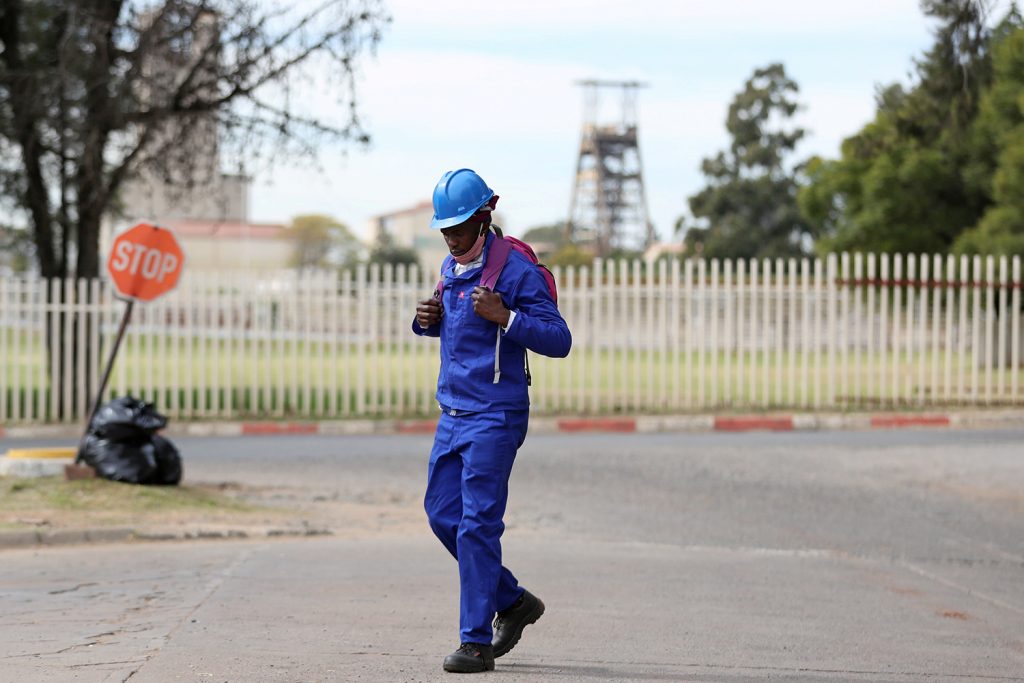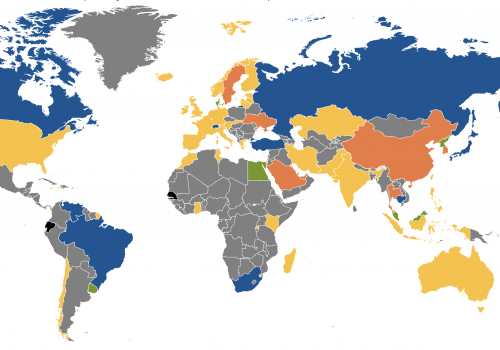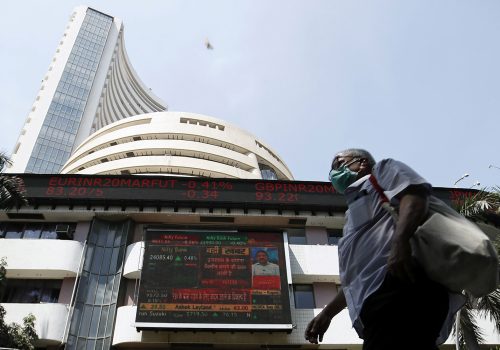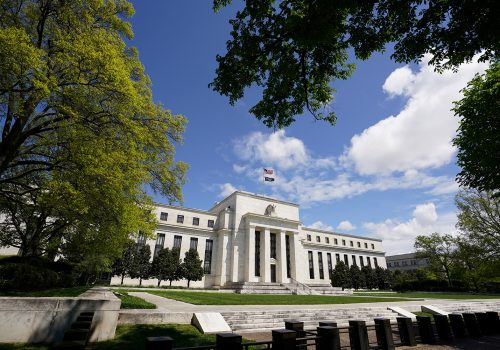The world is facing a simultaneous health and economic crisis that has spared no one. There won’t be winners in this pandemic and the related halt in economic activity, but some countries will suffer more than others. Emerging markets will lose more than the rest.
Emerging markets contribute one-third of global gross domestic product (GDP) and their output was projected to have amounted to half of global GDP between 2026 and 2030. The factors that have traditionally made emerging markets attractive are their demographics and productivity cost of labor. These are also some of the reasons why emerging markets are most vulnerable during the COVID-19 crisis and associated economic fallout.
The magnitude of the COVID-19 crisis on emerging markets pushed Group of Twenty (G20) finance ministers and central bank governors to commit to suspending debt payments through 2020 for poor countries that request forbearance, delivering comprehensive International Monetary Fund (IMF) support packages, and supporting World Bank (WB) and multilateral development banks initiatives amounting to more than $200 billion. Saudi Arabia Finance Minister Mohammed Al-Jadaan stressed that actions to freeze both principal repayments and interest payments will free up more than $20 billion for countries to spend on improving their health systems and fighting the COVID-19 pandemic. These measures are much needed to help poor countries deal with the current emergency, however, the COVID-19 crisis is worse than the 2008 financial crisis, thereby making this response insufficient.
The current suite of actions by G20 finance ministers and international financial organizations is not bold enough to help either the world or emerging markets. There is a need for decisive global action by G20 countries that translates into a global financial rescue effort. A failure to deliver a comprehensive response risks destabilizing political systems, exacerbating social instability, and aggravating migration and refugee flows.
Africa suffers the most
Africa faces intertwined crises: historically low oil prices, a cash exodus, and an abrupt end to remittances and tourism. Oil is one of the most important commodities for ten African countries, and oil producers are still recovering from the 2014 oil price collapse. In Nigeria, the largest economy in the continent, oil accounts for 90 percent of exports and two-thirds of government revenue, two-thirds of which is destined to service debt. And these figures were all based on a price of $57 per oil barrel. The situation is similar for Angola, Africa’s second-largest oil producer, whose economy was anticipated to contract for the fourth straight year even before the COVID-19 pandemic.
While oil is central to Africa’s economy, tourism and remittances are also key pieces of the puzzle. Tourism contributes $200 billion to Africa’s economy, or 8.5 percent of the continent’s GDP. Tourism represents 15 percent of Morocco’s GDP, 12 percent of Egypt’s, and 10 percent of Kenya’s. Meanwhile, remittances contributed $82 billion to African economies and have been a financier of last resort. For instance, Ethiopia and Nigeria used diaspora bonds to finance infrastructure projects, and 85 percent of Ghana’s gross national savings come from the diaspora.
Africa’s structural problems have been exacerbated by COVID-19. The United States, Australia, and Canada spent 11, 10, and 8 percent respectively of their GDPs on stimulus packages; Africa will spend 0.8 percent of total GDP. Almost fifteen African countries will spend more money servicing their debt than on their medical response to COVID-19. For the short- and medium-terms, Africa will face a cash crunch, and COVID-19 combined with low oil prices will certainly lead to a serious contraction of Africa’s economies and hamper future growth. It is very likely that governments will run excessive budget deficits and many countries, like Zambia and Ghana, may end up defaulting on their external debts.
The remaking of the Middle East
The COVID-19 pandemic, the halt in economic activity, and the oil price crisis will destabilize an already volatile Middle East. Arab monarchies used their accumulated wealth to stabilize their markets after the Arab Spring, but that formula will not work today. Kuwait and UAE need, respectively, oil prices of $54 and $70 per barrel to finance their budgets, while Saudi Arabia and Bahrain require prices of $83 and $91. The contraction in global demand caused by the COVID-19 pandemic will limit the impact of current production cuts under the new Organization of the Petroleum Exporting Countries Plus (OPEC+) deal. Even if a vaccine is successfully produced, prices will not follow through as fast as oil producers hope.
These global geoeconomic realities will force Gulf monarchies, “the de facto central bank for the region,” to direct their finances to domestic recovery rather than helping troubled neighbors. Outside of the Gulf Cooperation Council, most Middle Eastern countries do not have the financial cushion to weather the storm, and their revenues from tourism and remittances have run aground. For instance, Lebanon has already defaulted on its Eurobond debt during a time of mass protests, Jordan is entering a time of economic instability, Algeria slashed 30 percent of its state budget and its economic crisis is worsening, Iraq is running out of cash, and Tunisia’s economy will contract 4.3 percent and Tunis needs the IMF to help finance its economy.
Another lost decade in Latin America
The World Bank expects Latin America’s GDP to shrink 4.6 percent in 2020 as a result of COVID-19, going from “lackluster to calamitous.” Talking about the effects of the COVID-19 pandemic in its most recent World Economic Outlook, the IMF states that the “risks of a worse outcome predominate.” This is likely to be the case for emerging markets in Latin America, which are heavily dependent on foreign investment. These countries face the sharpest reversal in portfolio flows on record, and the loss of external debt financing may eventually lead to debt restructuring. This is already happening in Argentina, which is headed now towards its ninth sovereign debt default. Ecuador’s sovereign credit rating was downgraded, as the site of Latin America’s most aggressive COVID-19 outbreak is expected to miss upcoming payments on sovereign bonds. A COVID-19 study by Bank of America Merryl Lynch found 60 percent of fund managers expect Mexico to lose its investment grade in 2020; the country has already been downgraded by S&P and Fitch. Mexico and Brazil, Latin America’s largest economies, have responded poorly to the crisis; neither has announced significant stimulus packages, and both lack unemployment insurance for laid-off workers. No country in Latin America is at such risk as Venezuela. Its request for a $5 billion emergency loan from the IMF to fight COVID-19 was rejected on the grounds that the Maduro government lacks international recognition, leaving the country on its own to deal with another severe economic shock.
The region’s workforce is highly vulnerable since over half of Latin American workers remain in the informal economy, meaning they lack social protection. Latin America’s health inequality, one of the most persistent in the world, will add to regional grievances about economic inequality and might reignite the social protests that hit the region in the recent past. This scenario is highly likely considering nearly 29 million people will fall into poverty this year in the region because of the economic collapse triggered by the pandemic.
In Asia, hit as hard as ever
In Asia, despite previous experiences with similar scenarios, primarily the 2003 SARS outbreak, the prospect for emerging markets is also bleak. For the first time in six decades, the region will not register any economic growth this year. S&P adjusted its outlook for Indonesia to negative from stable due to the downside risk to the government’s fiscal and external metrics. Thailand’s economy was already suffering, its GDP is set to contract 6.7 percent due to the decline of tourism and its importance, which would make it the worst performer in the Association of Southeast Asian Nations (ASEAN). Malaysia, Southeast Asia’s third-largest economy, is likely to have its worst economic performance in over a decade, although the implementation of a large stimulus package—the largest ever for the country—creates hope for a V-shaped recovery. This will come at the cost of a considerable fiscal deficit, nearly 5 percent of GDP, and the oil price slump will have a sizable impact on the country, as the contribution of oil to total revenue was projected at 20.7 percent in the 2020 budget.
The Philippines was an “economic star” until the COVID-19 outbreak, but now its economy will shrink for the first time in two decades. It is not as vulnerable as other nations in Southeast Asia because it is comparatively less reliant on exports and tourism; however, it will be impacted by a substantial fall in remittances–the World Bank expects global remittances to contract by 20 percent this year. South Korea’s economy suffered its worst contraction since 2008, and the shock could widen because of the country’s dependence on international trade. The grim outlook for global trade and investment will be the most prominent risk for South Korea moving forward. Despite all of the above, the structural conditions and economic fundamentals in Asian emerging markets indicate the region might just fare better than most others and could recover strongly in 2021.
The day after COVID-19
The world is experiencing a crisis and lacks clarity or a vision of what is coming next. But numbers do not lie, and the COVID-19 pandemic will inflict more pain on emerging markets than on developed economies. Today’s response is primarily occurring at national levels and to some extent regionally, with a symbolic international response through sporadic aid shipments. Once the dust settles and the pandemic comes to an end, global economic powers would do well to focus on more than national economic recovery. The global recovery will not take the ideal V-shape without the right rescue mechanisms for emerging markets. Without a robust response for these countries, the global economic recovery might simply stall and some emerging markets might not recover at all. Multilateralism is the best hope to avoid a protracted global depression. Nations must expand the mandate of existing international organizations and financial institutions, and come up with aggressive and bold financial mechanisms to assist emerging markets.
While developed markets have responded with historical levels of fiscal stimulus, globally there is immediate fiscal need in the emerging markets to tackle the health and economic fallout. The IMF and WB, the G20, and the US Federal Reserve should all pursue coordinated and bold policies in dealing with the current crisis. First, the G20 should extend its suspension debt service payments until the end of 2021 to allow emerging markets to redirect finances to support local demand. Second, the US Federal Reserve should extend its “swap lines” to an expanded list of leading emerging markets’ central banks, such as India, Turkey, Malaysia, Egypt, Indonesia, and South Africa, to alleviate the credit strains in these dollar funding markets. The Fed has already extended “swap lines” to Mexico, Australia, Brazil, Singapore, Norway, Denmark, Sweden, South Korea, and New Zealand. Third, the G20 needs to provide additional financing to regional development banks, such as the African Development Bank, Islamic Development Bank, and Inter-American Development Bank, to increase their response facilities that support emerging markets at the local level.
These actions should come hand-in-hand with the existing lending programs.
Global implosion
The pandemic is producing a historic economic fallout that will lead to large-scale social disruptions in emerging markets. Without a global response to support worst-hit emerging markets, there is a high likelihood for widespread anti-government protests, a massive flow of refugees and migrants to more affluent countries, and perhaps even a resurgence of militant groups—global implosion. It is important to approach the fallout from the COVID-19 pandemic with aggressive and proactive measures. The risks of failure are simply too high.
Mohammed Soliman is a policy advisor and a nonresident scholar with the Middle East Institute. His work focuses on the intersection of technology, geopolitics, and business in the emerging markets. Follow him on Twitter @Soliman91.
Francisco Campos is a consultant, working at the intersection of business diplomacy, trade and investment. His main interest is on how international trade and investment regimes affect businesses around the world.
Further reading:
Image: A mine worker with a mask hanging on his face walks at the end of his shift during a nationwide coronavirus disease (COVID-19) lockdown, at a mine of Sibanye-Stillwater company in Carletonville, Soth Africa, May 19, 2020. REUTERS/Siphiwe Sibeko



